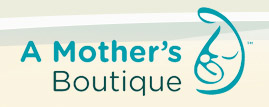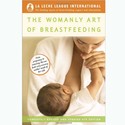An article published in the New York Times details the recent decision of the IRS to exclude breastfeeding expenses and breastpumps from eligible reimbursement by tax sheltered flexible spending accounts. These accounts allow employees to use pre-tax dollars to pay for medical expenses that are not covered by insurance such as medical deductibles, prescription drug co-pays and acne cream. But breastfeeding has been ruled as “nutritional” and the IRS stated that it does “not have enough health benefits to qualify as a form of medical care” therefore breastfeeding expenses are not covered. “I.R.S. officials say they consider breast milk a food that can promote good health, the same way that eating citrus fruit can prevent scurvy.”
The American Academy of Pediatrics had petitioned the IRS to include breastfeeding expenses in the new Health Care bill because exclusive breastfeeding until age 6 months has a whole list of health benefits “including one recent study that found it could prevent the premature death of 900 babies a year.” When moms go back to work, they need to pump their milk to continue to breastfeed their babies, and this can be quite expensive as detailed in the NY Times article:
To continue breast-feeding once they return to work, many mothers need to use pumps to extract milk, which can be chilled and bottle-fed to the child later. The cost of buying or renting a breast pump and the various accessories needed to store milk runs about $500 to $1,000 for most mothers over the course of a year, according to the United States Breastfeeding Committee, a nonprofit advocacy group. Lactation consultants, who can cost several hundred dollars, also would not be an eligible expense.
One upside to the new healthcare bill (which takes effect in January 2011) is that employers are required to provide unpaid breaks for moms to pump their milk at work. “Unless the law changes, some mothers may ask their pediatricians for a note that breast-feeding is medically necessary.” This may enable them to get breastfeeding expenses covered under their pre-tax savings plans.
While our government agencies say that they support breastfeeding and want to encourage moms to breastfeed longer, they haven’t followed through with regulations to support it. It seems that breastfeeding support still has a long way to go.
What are your thoughts on this new ruling? Please leave a comment below.











[…] This post was mentioned on Twitter by Judy Masucci, Jennifer L.W. Fink, Camille , Terry Bennie, Annee Matthew and others. Annee Matthew said: Breastfeeding Denied Recognition By IRS: http://bit.ly/bkedSv #bfing […]
While it’s disappointing that breast pumps are not an eligible expense for FSAs in every case, there are many FSA eligible items that are still relevant for new moms and moms-to-be.
You may be interested to know that you can still save up to 40 percent on the following items by using your flexible spending account:
Co-payments for check-ups (for mom and baby): Keep in mind that women visit the doctor an average of 12 times over the course of their pregnancy. If you have a $15 dollar co-pay, that’s $180 in out-of-pocket expenses that, by using an FSA could save you up to $72 in taxes because you pay for the expense with pre-tax dollars
Child birthing classes (for the mother): While these classes are sometimes offered for free, often they can cost up to $100 or more. If you plan on taking a class, call around and get different estimates from your local hospital or health care clinic to help you plan ahead.
Obstetrics/hospital expenses: Depending on your insurance coverage and where you live, you may have to pay fees beyond your regular co-pay in order to give birth. Once you have a birth plan in place, talk to your insurance company about what kinds of expenses you can expect, and what cost-sharing amounts you’ll incur.
Dependent care: If you’re planning on going back to work soon after your child is born, consider setting aside money in a dependent care flexible spending account. With a limit of up to $5,000 a year, you can save a ton of money on child care using an FSA.
For more information on expenses covered by FSAs, see http://www.SaveSmartSpendHealty.com .
[…] it’s list of expenses that were reimbursable under health care flexible spending accounts, breastpumps were excluded because they lumped them into the category of “nutrition” and just like they […]